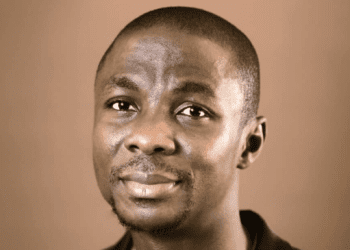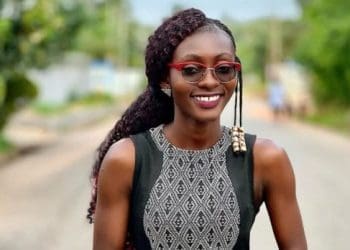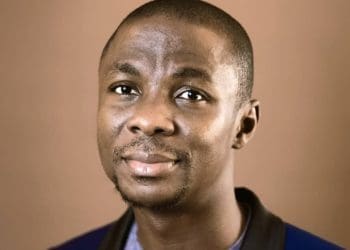There are four intelligent black women I would like to take to lunch: Lydia Forson, Michelle Obama, Chimamanda Ngozi Adichie, and Karen Attiah, the recently sacked opinion columnist of the Washington Post in the newsroom.
The fifth woman, if I can afford a particularly classy tavern, would be Shaffy Bello, a Nollywood actress.
There is actually a sixth–the timekeeper who must approve the lunch meetings and also reconcile the family budget with the energy behind the tips I gambled away.
Beauty brains and brawn
What do these women have in common? They have colossal amounts of the BBB: Beauty, Brains, and Brawn.
Being men with wombs (wombmen), each of these accomplished women has built great things for themselves…with their sheer brain power, hard work, and sense of industry.
They have another thing in common: an unabashed stubbornness to contest any sexist commentary or innuendos from testosterone-pregnant male species who do not see beyond the curves of a woman.
After the unfortunate shooting of Charlie Kirk in Utah, Attiah, a phenomenal American journalist of Ghanaian parentage, who is also the founding editor of the Global Opinions section of the prestigious Washington Post, reposted Kirk’s own words on her social media:”Prominent black women do not have the brain processing power to otherwise be taken really seriously, and had to go steal a white person’s slot to be taken somewhat seriously.” Kirk, a brilliant and eloquent provocateur known for his strong views on controversial subjects, had referenced specific black women in the post, including Ketanji Jackson and Michelle Obama.
Like The New York Times, which observed that Karen’s post did not seek to celebrate Kirk’s killing, you might also ask: how does somebody merely quote another person, and is careful enough to put their words in quotation marks, and they get the sack for the quote?
Was it the timing of Attiah’s post or the contents of the original words of Kirk, that were too offensive to merit remembering?
Black success, white backlash
The Employee Union of the Washington Post has condemned Attiah’s firing, while reputable media giants such as The Independent and The Guardian suspect that the embattled editor’s job may have already been in danger for other reasons, particularly after the paper’s acquisition by billionaire Jeff Bezos, which signalled a conservative shift.
Attiah has petitioned the Union, in which she argues that her social media comments do not violate The Washington Post’s social media policy.
Sister Abena (what Karen would be called if she lived in Ghana), may have fallen victim to the phenomenon of ‘Black Success, White Backlash’, a reality in America and Europe where corporate high-flyers and successful black people navigate a discriminatory and racist minefield to assert themselves or merely survive.
To land a job at The Washington Post is an expensive dream that many black people in America may never be able to afford.
For a black lady to win the confidence of a mostly white workforce of intelligent and opinionated people, and to be trusted to start and edit the Global Opinions section of a national newspaper, may be more difficult than winning a federal election. But Karen did not stop there; she was elevated to Opinions columnist in 2021 before she lost the position this year.
Karen was voted the 2019 Journalist of the Year by the National Association of Black Journalists.
In Ghana, that is the equivalent of the GJA Journalist of the Year fifty times over.
She had won the Association’s Salute to Excellence Award in Digital Commentary in 2018, and in 2021, she was the recipient of the Washingtonian Star to Watch Award.
This is no small feat for a black journalist in the USA. My senior colleagues in the ink trade, Moses Yahaya and Prof Okoampa-ahoofe, know this.
Unusual grace, unusual talent
The last time I interviewed for a job at a community newspaper in England, I came back wondering if I should ever call myself a journalist at all.
The editor of the paper (imagine Bawjiase Times of The Konongo Chronicle) wondered whether the writing samples I had sent were culled from community newspapers in Ghana.
The papers were of low print quality and would not pass for a college news bulletin in Birmingham or Milton Keynes.
I didn’t get the job. For consolation, they regularly published my letters to the editor and my rather long opinion columns.
In Canada, I belong to a few writers’ clubs. I have been to the CBC to sit in George Stroumboulopoulos’s Show.
Like in America, the Canadian black journalist needs to find their spot in the media space.
The only time I met Adrian Harewood, a brilliant black-Canadian media voice, we lamented the struggles of the black journalist, but we also celebrated the excellence of blacks who have upended their craft in a difficult industry.
Komla Dumor had peaked at the BBC, and Adrian confided that Dumor “carried the grace that no black journalist has.”
I received the compliment in Dumor’s place. The Boss Player sent down a goldmine of broadcasting talent.
Karen Attiah belongs in the same space as Dumor. As Abby Phillip, CNN. As Yamiche Alcindor, PBS White House correspondent. As Emma Agyemang, Financial Times, UK.
Ghana has not produced Kwaku Sakyi-Addo’s quality in a while. But we are grooming some fine talents. Kay Codjoe is a star to watch. Caleb Kudah is another.
Aku Banasseh writes well. Good enough to edit the Washington Post? Why not? Elizabeth Ohene did it at the BBC.
Ben Dotsei Malor did it, too. I could do it for the Bawjiase Times if we had community newspapers in Ghana.
Tissues Of The Issues
bigfrontiers@gmail.com
Ottawa, Canada














